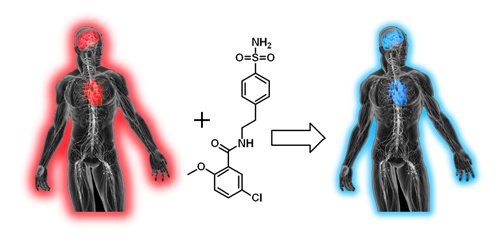NLRP3 Inhibitors

Increasing evidence has demonstrated the role of inflammasomes as a key player in the triggering and prolongation of inflammation in a variety of disease states and models, including ischemia-reperfusion injuries, Type II diabetes, and Alzheimer's disease. Prominent members of the inflammasome family include NLRP6, NLRC4, and AIM2. However, the most studied and widely implicated inflammasome to date is the NLRP3 inflammasome. While significant advances have been made in understanding the NLRP3 inflammasome and mounting evidence has demonstrated the benefits of its inhibition, there are currently no clinically-approved therapeutics targeting NLRP3. Recently, we have discovered a novel analog of glyburide as a direct inhibitor of the NLRP3 inflammasome. In collaboration with Dr. Abbate at VCU, we have shown the ability of this compound to reduce IL-1beta maturation, prevent ASC oligomerization, and reduce caspase-1 activity in vitro and in vivo. In continuing this project, we are working to synthesize novel derivatives of our lead compound in search of highly potent and selective analogs with favorable pharmacokinetic profiles. Additionally, we are also investigating the specific mechanism of action for this class of inhibitors in an effort to elucidate their binding mode. This will further our understanding of these compounds and their interactions with the inflammasome, and potentially enable the development of novel inhibitors using a structure-based design approach.